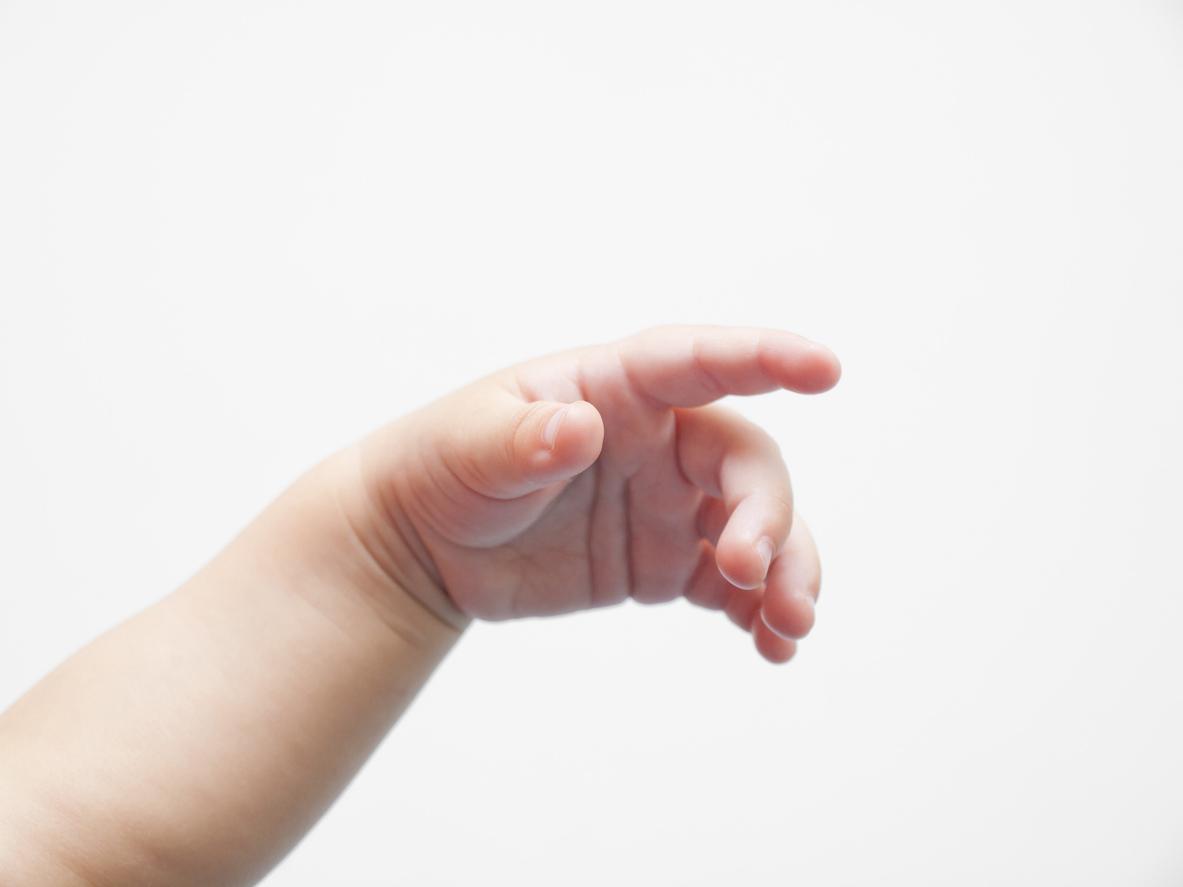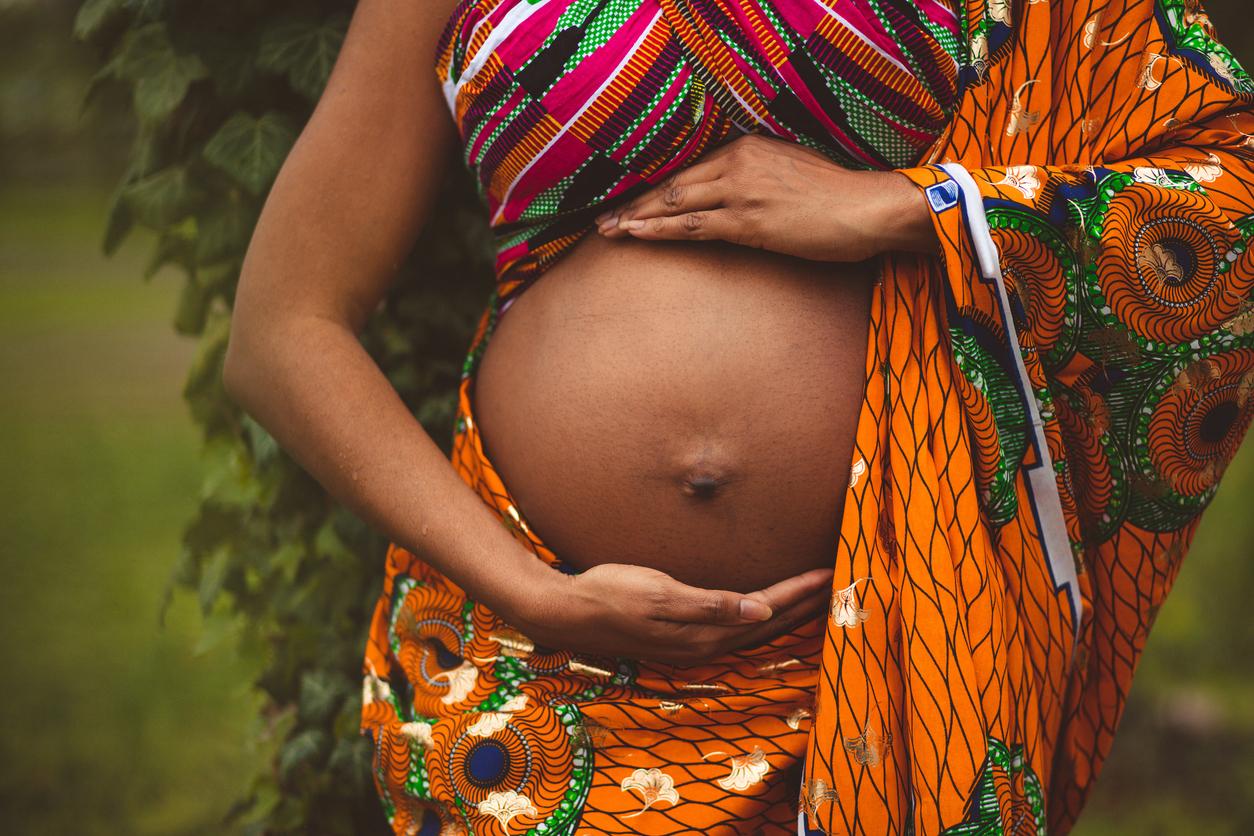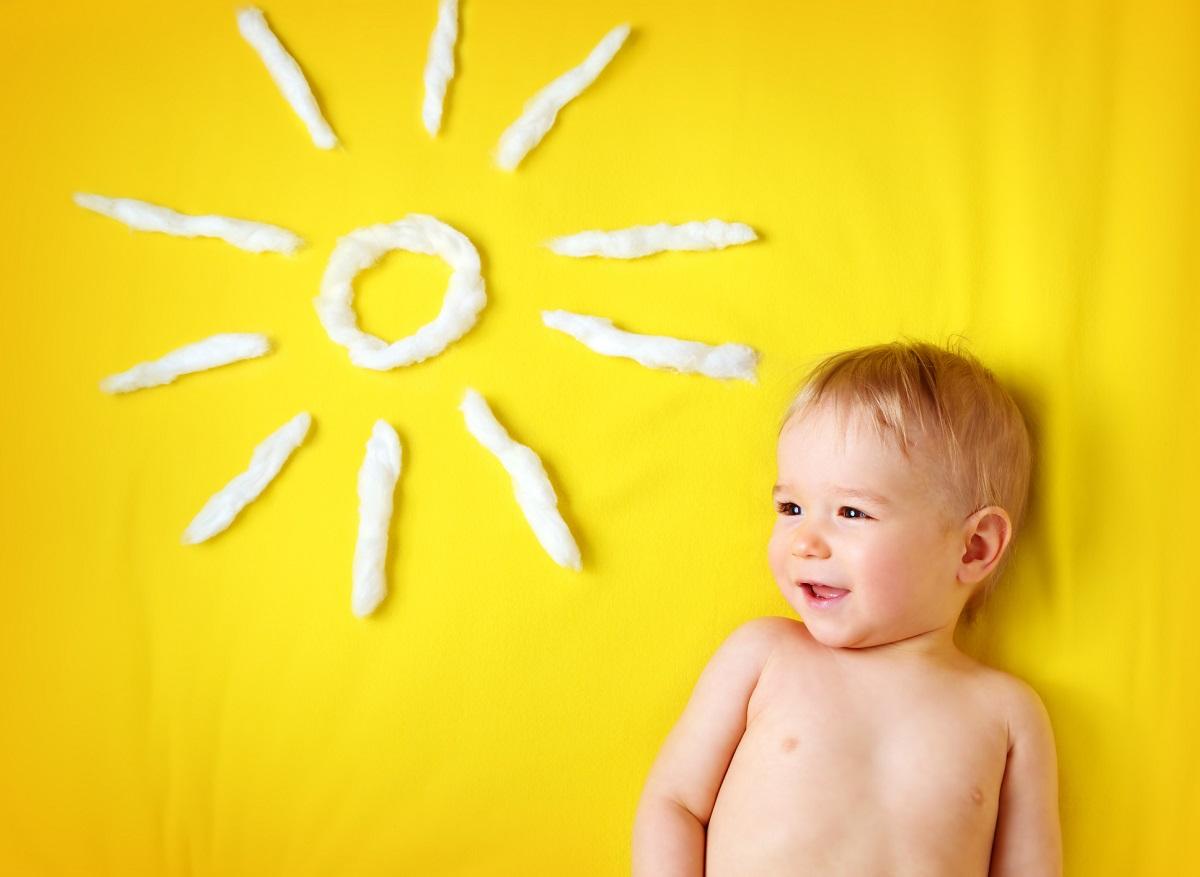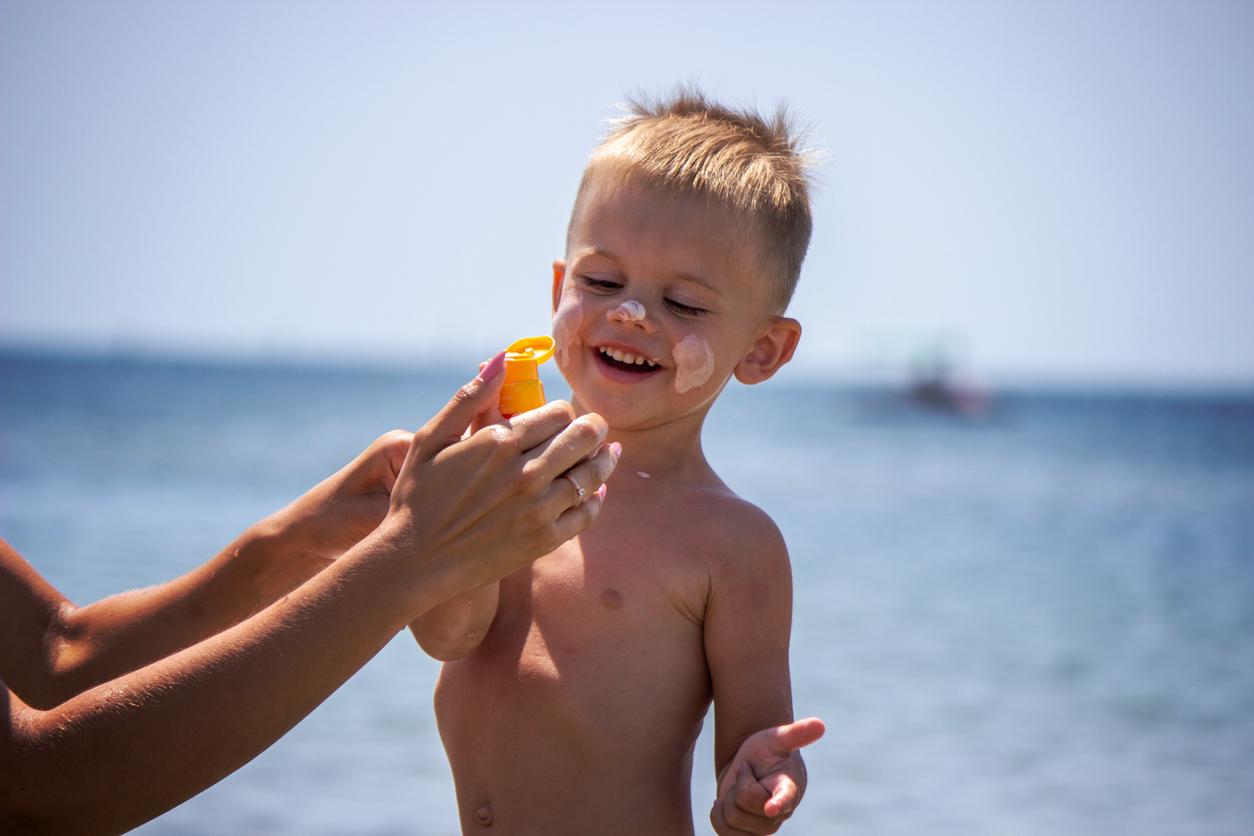American researchers recently observed the impact of wearing a mask on the development of infants, in particular on their ability to recognize masked and unmasked faces.
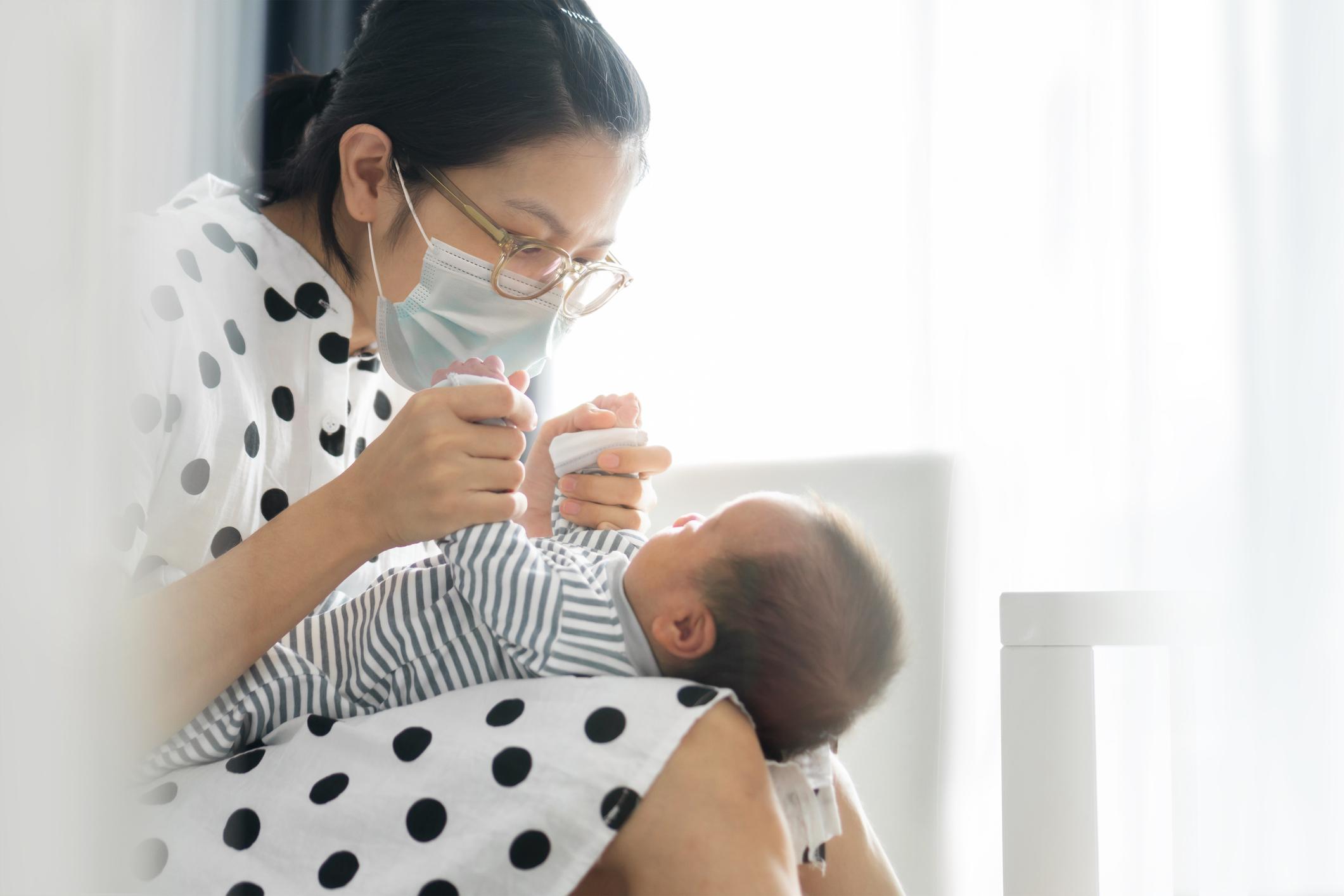
- The purpose of the face mask is to prevent the transmission of the virus by the wearer to those around him by blocking the infectious droplets.
- In France, wearing a mask is no longer compulsory in public places but it remains recommended for people who are positive for Covid during the 7 days following their period of isolation, contact cases at risk, symptomatic people and people vulnerable.
We know that a child needs oral and visual interactions to learn to speak, to understand emotions or to create relationships with those around him. In a new study, researchers from the University of California at Davis (United States) assessed the consequences of widespread mask wearing during the Covid-19 pandemic on the development of babies. “People were very worried about face masks and the effect they would have on how infants learn about human faces,” explained Lisa Oakes, co-author of the study and professor in the Department of Psychology and the Center for Mind and Brain at Davis.
Babies can recognize faces with and without a mask
During the search, the Scientists showed pairs of masked, then unmasked, female faces via a computer screen to 58 babies sitting on a parent’s lap or in a high chair. At the same time, cameras recorded the gaze of young children. These tests were carried out at the Center for Mind and Brain from the end of December 2021 to the end of March 2022. During this period, wearing a mask was recommended in this state to deal with the Omicron variant.
According to Michaela DeBolt, a doctoral student in cognitive psychology and co-leader of the study, babies linger longer on images that they do not know. The researchers were then able to deduce which faces they recognized during this work published in the journal Childhoody. “When babies aged six to nine months learned about a masked face, then saw that unmasked face again, they recognized it”reassured Michaela DeBolt.
However, babies had more difficulty recognizing masked faces when they first saw them without a mask. But for Michaela DeBolt, this phenomenon is normal, because even adults sometimes find it difficult to immediately recognize a loved one when they are wearing a mask.
Wearing a mask: children would have a harder time interpreting emotions
Despite the reassuring results of this new study, research published in 2021 in the journal Frontiers in Psychologyhad shown that wearing a mask reduced the ability to understand emotions in children aged three to five.
To reach this conclusion, scientists from the Italian Institute of Technology evaluated 119 people, including 31 children aged three to five, 49 children aged six to eight, and 39 adults aged 18 to 30. They then showed participants images of masked and unmasked individuals. The latter had to identify the emotions present on the faces of the characters in order to determine whether they looked sad, happy, fearful or angry. According to the results, adults identified emotions in 70 to 80% of cases compared to only 40% among three to five year olds.








